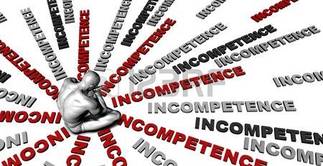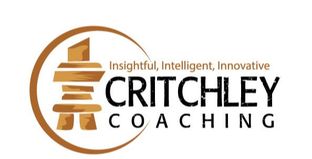
The model is one that deals with the stages of competency. When student teachers step into their first practicum classroom, they are excited and ready to teach. They have studied methods courses for two months, they recall being in a classroom when they were a student and they think they know what teaching entails. The first few weeks fly by, one great experience after another. They busy themselves with learning student names, working with individual students and small groups. Each interaction feels like a success and they honestly feel like they are ready to take on a full class of learners. Even when they teach their first lesson, this feeling usually continues. Although I never mention it to them, most of them are in the first stage of competency: Unconscious Incompetence. They really do not know what they do not know.
Flash forward almost a year. These same students have now been studying for a full year and are stepping into their second practicum. Inevitably, at this stage I hear the students mention that the second practicum is not quite as easy; not quite as fun. They comment that the students are more difficult, the classrooms contain students with many more challenges, it is more difficult to come up with intriguing lessons etc. Hmmm. The truth is that their students have not really changed, but the student teachers have entered the second stage of competency: Conscious Incompetence. In other words, they are now aware of how much they do not know. They realize that they have just begun to scratch the surface of the intricacies of teaching. They know that there is much more to teaching than just being nice and presenting material. The problem is that they also realize that they are missing a few tools. The good news is that most of them adjust and begin to really grow their knowledge and skill set during this practicum.
Flash forward one more time to the spring of their second year and their final practicum. This time, the student teachers enter the practicum with a much more expansive mind set. They understand that they have a tool box that is starting to fill, but that there are many, many more tools to acquire. They have learned that every class will have challenges and that they have the ability to figure out how to manage these. This practicum is not nearly as scary as the second one but it requires very deliberate thinking. For the most part they have reached stage three: Conscious Competence. This means that they can be quite successful in their work, but they need to be constantly thinking about what they are doing. When they are presented with a situation that requires a quick decision, they still need to take time to consciously weigh out the options.
These past few weeks I have been witnessing some fourth stage competency: Unconscious Competence. I was watching a young teacher as the children were coming in the classroom one morning. She had some work on the smart board ready for them, she greeted each by name, she smoothly redirected some unwanted behaviours, another teacher came to her door with a request and she dealt with it, and she collected some field trip forms. It really was flawless. I was smiling to myself as I recalled a similar teacher on her very first practicum – saying hello to the children while being completely oblivious to all of the structures that had been put into place by the regular classroom teacher. In less than two years, these students moved from Unconscious Incompetence to Unconscious Competence.
I’ve been thinking about how these stages apply to so many of the things we do in life. In a structured program like Education, we expect that the students will walk through these stages in some kind of organized fashion. The program is set up this way. However, in our own lives, we also pass through these stages regularly and often beat ourselves up because we do not achieve stage four as quickly as we like.
When I did my very first performance with my dance group, I experienced first hand, these stages of competency. I arrived at a senior’s centre, in my prescribed outfit, ready to dance. Just like I had learned in class. The problem was, I didn’t know that the music for our performance was not the same music that I had learned the dances to. Unfortunately for me, I had been using the cues of the music to remind me of the steps of the dances, when really, I should have been using the names of the dances to cue myself about the steps. There I was, all lined up, standing in perfect Unconscious Incompetence! I did not have one clue that I did not know what I needed to know.
You can imagine the look on my face when I heard an unfamiliar Spanish song come on! Talk about moving quickly to Conscious Incompetence! I was extremely conscious of how incompetent I was looking. By the middle of the song I had managed to move my face from a look of sheer horror to one of deep concentration and I figured out that I really did know the steps. But I really had to focus hard because my usual cues of the music were missing. I knew that I had moved into Conscious Competence when I got the steps right after about three repetitions of the step sequence, because one of the senior men, who must have been watching me struggle, finally gave me a ‘thumbs up’ and a smile! Oh dear!
These days, after many similar performances, I am often able to smile at the audience, sing along with the songs and have a great time while I dance. In these moments, I am in Unconscious Competence.
Whenever we choose to make a change in our lives, or when a change is thrust upon us (for example when we sign up for a new group or we volunteer for a committee) we can rest assured that we are likely in either in Unconscious Incompetence (we don’t have a clue what it will involve and we don’t have the skills) or Conscious Incompetence (we realize we are in over our heads!). However, if we stick with it, we find we move nicely through the next phases until we find ourselves at a place where we are training the next set of group members!
Knowing this, understanding that this progression is natural, can help us relax and appreciate the gift of incompetence. It is when we recognize our incompetence that we should also recognize that we are being given an opportunity to grow. This is when we are using muscles that we do not usually exercise and when we are expanding our minds.
Take time this week to notice where you land on this competency continuum in the many areas of your life. Hopefully you will be amazed at how many things you do with great competency; and hopefully you will learn to embrace the feeling of incompetence in other areas as you begin to see it through the lens of growth.
My inquiry for you this week is, ‘Where am I on the competency continuum?’
Learn more about using competency thinking to live bravely. Book a coaching session for you, for your workplace or for a group of friends. It’s time to quit being afraid of being incompetent!


 RSS Feed
RSS Feed